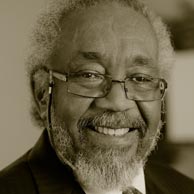Champion of Change—Black Faculty and Staff Association Founder
The Black Faculty and Staff Association (BFSA) came together, as so many advocacy groups do, over lunch and a conversation. Lunch was at the Polo Grill, then a restaurant across from Homewood Field, and the people who had gathered to talk were black senior staff members concerned about the lack of support for people of color at Johns Hopkins. Toni Moore-Duggan, one of the participants, recalled how that lunch and subsequent discussions among the staff members led to their decision in 1995 to establish the BFSA. “After graduating from Johns Hopkins and while working there, it became evident that there was no voice or forum for black people having difficulties here,” said Moore-Duggan, a certified nurse practitioner who worked at the institution for years.
At first, Moore-Duggan said, she and the other staff members were not sure if anyone would buy into efforts to create a forum for people of color, but they did. Seventeen years later, the group is not only going strong but has expanded its mission: to help foster a culture of collaboration by promoting and enhancing the identity and professional welfare and growth of faculty, staff and students through collaborations, community service, education, research and cultural activities. The BFSA has also charged itself with being a crucial resource for the continued success of Johns Hopkins through the development and cultivation of relationships with key leaders of the institution.
Vernon Savage, now retired, was the director of outreach for the JHU Counseling Center. He served two terms as president of the BFSA. During his first term, in 1998, Savage began the process of opening the organization to faculty and staff on the East Baltimore campus. Savage’s personal history is one of losing and then finding his direction. After graduating from Baltimore Polytechnic Institute, he worked at a variety of jobs and in the Marine Corps Reserve. During this time, he became involved in drug dealing and was imprisoned. With hard work, however, he turned his prison term into a time of growth: He began taking college classes, met a mentor who challenged him to succeed and earned an associate’s degree and a Ford Foundation scholarship for continued higher education. Out on parole, Savage earned master’s and doctoral degrees in clinical psychology and began a career in psychology and higher education administration that spanned more than three decades.
